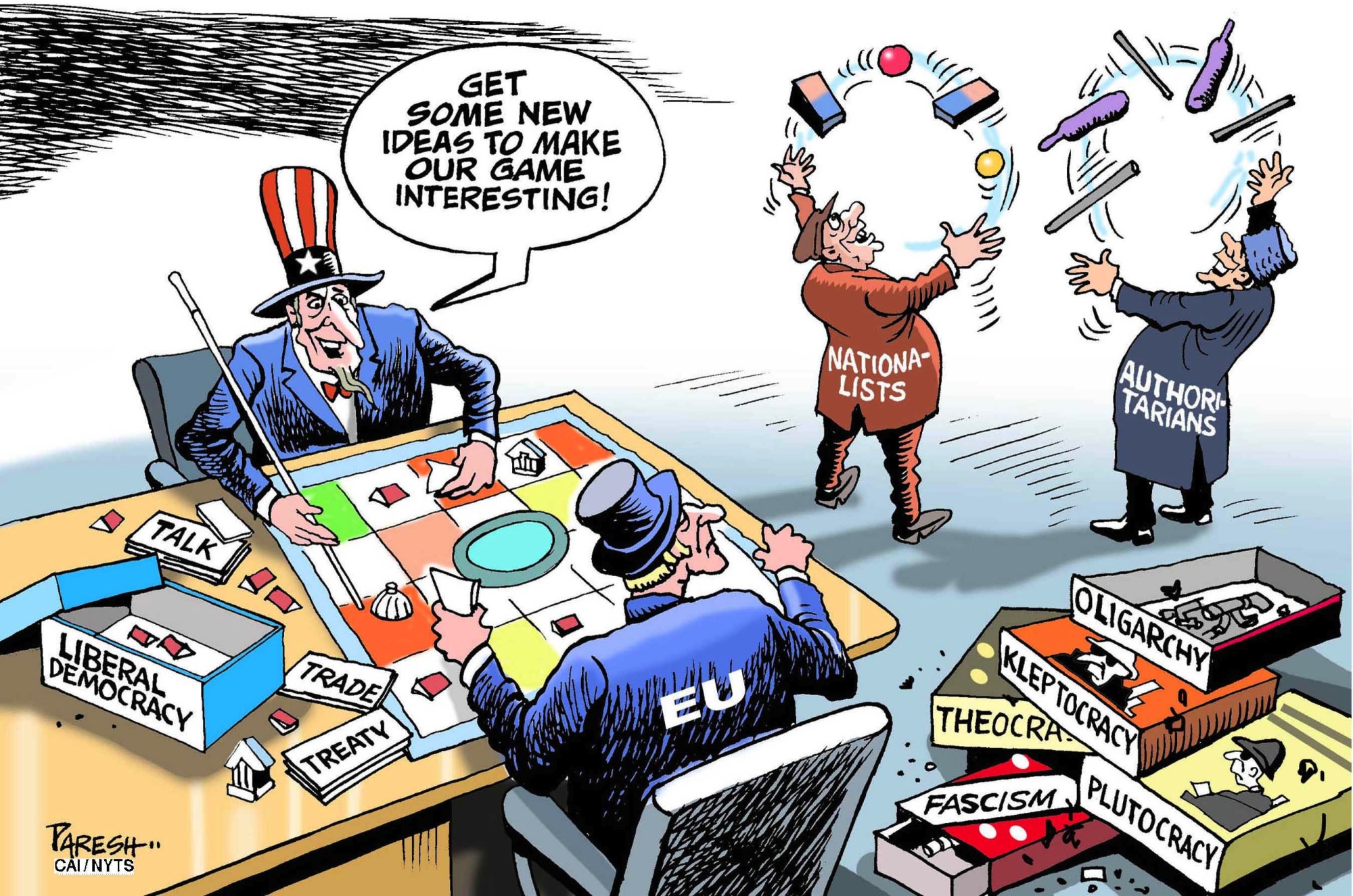It has not exactly been a banner year for liberal democracy. It may not have been as bad as 2016, marked by the dual shocks of Brexit and the victory of Donald Trump, but this offers little solace. Indeed, much of this year has been confirming that these electoral outcomes were as damaging as they initially appeared to be, with both the United Kingdom and the United States seemingly intent on collective self-harm. These significant examples fit within a broader trend of instability and discontent amongst other democracies, most notably manifest in the rise of populist politics and growing success of far right parties.
Established democracies look increasingly weak, unwilling or incapable of dealing with the complex array of economic and social problems they face. Meanwhile, China and Russia are at the fore of a resurgent authoritarianism, with Xi Jinping and Vladimir Putin looking strong and smart next to the consistent buffoonery of Trump. Democratic rollback has continued and deepened in key states, most notably Poland and Hungary, with little pushback from the European Union, as well as Turkey.
This growing uncertainty surrounding democracy stands in stark contrast to the optimism and confidence that marked the end of the Cold War, just a quarter of a century ago. At the time, however, there was a tendency to mistake the end of the communist experiment for the validation of democratic rule, and to equate democracy with good government. Yet these were not the same things. The failure of really existing socialism did not in itself demonstrate the virtue of really existing democracy. Likewise, democracy may result in good government, but insofar as it is a reflection — admittedly imperfect — of the people's will, it is also capable of reaching very bad outcomes, as we have seen more recently.



















With your current subscription plan you can comment on stories. However, before writing your first comment, please create a display name in the Profile section of your subscriber account page.